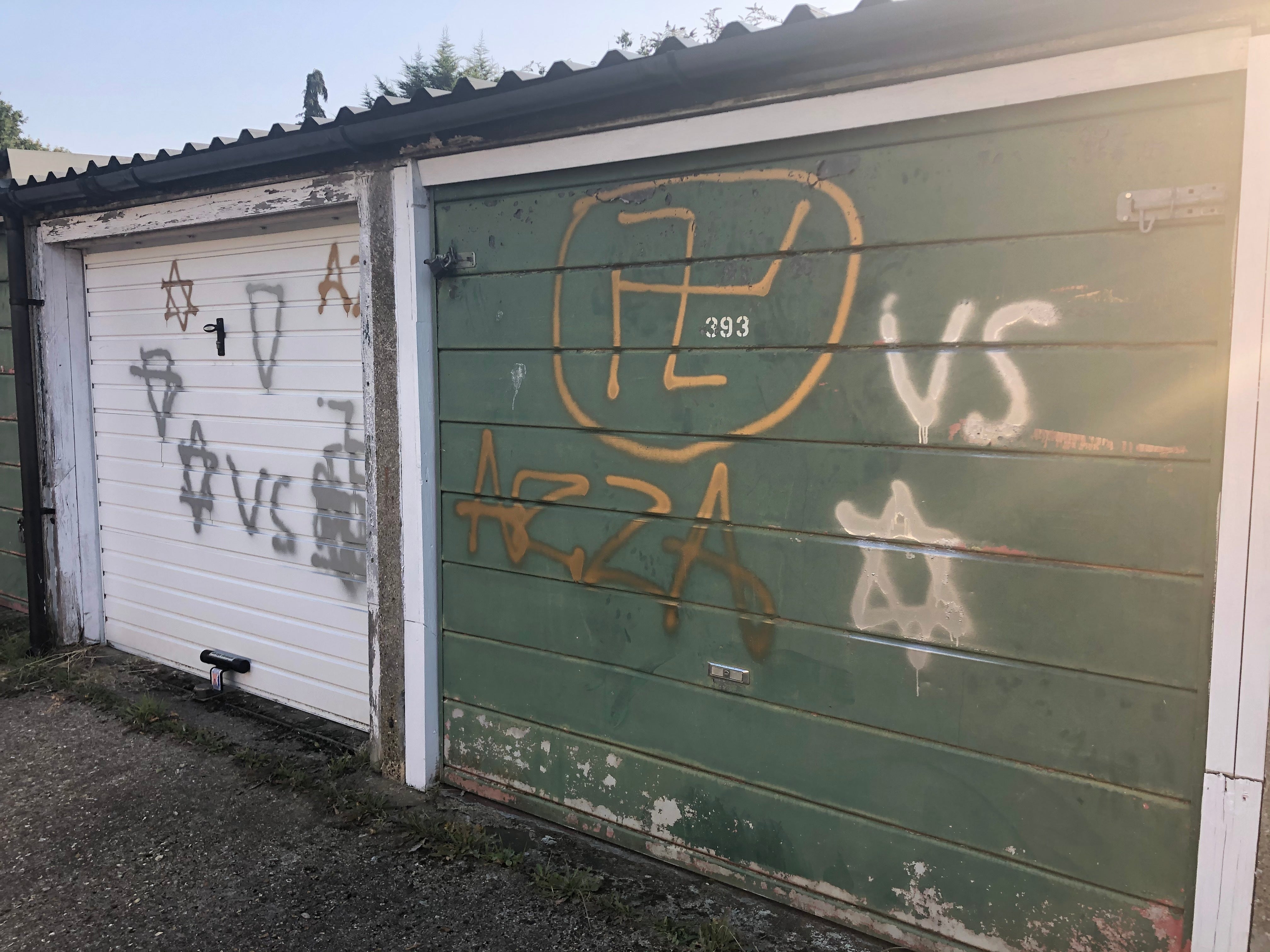Coronavirus has fuelled new forms of antisemitism, charity says
396 incidents directly referenced or stated support for Hitler or the Nazi party

Your support helps us to tell the story
From reproductive rights to climate change to Big Tech, The Independent is on the ground when the story is developing. Whether it's investigating the financials of Elon Musk's pro-Trump PAC or producing our latest documentary, 'The A Word', which shines a light on the American women fighting for reproductive rights, we know how important it is to parse out the facts from the messaging.
At such a critical moment in US history, we need reporters on the ground. Your donation allows us to keep sending journalists to speak to both sides of the story.
The Independent is trusted by Americans across the entire political spectrum. And unlike many other quality news outlets, we choose not to lock Americans out of our reporting and analysis with paywalls. We believe quality journalism should be available to everyone, paid for by those who can afford it.
Your support makes all the difference.The Covid-19 pandemic has given rise to new forms of antisemitism, new data shows.
In 2020, the Community Security Trust (CST) recorded 41 incidents that contained antisemitic rhetoric alongside reference to the pandemic, such as referring to the coronavirus as the “jew flu”.
The charity also found a number of “zoom-bombing” incidents, where online events are hacked with antisemitic content. This is a form of antisemitic hate never recorded before 2020.
The 1,668 incidents recorded by the CST represent a slight decrease from 2019, but still represent the third-highest rate of antisemitism recorded in one calendar year.
Despite the trending decrease, the CST report shows wider geographical occurrence of antisemitism, with 56 per cent occurring in Greater London, 9 per cent in Greater Manchester, 6 per cent in Northumbria, and 4 per cent in West Yorkshire. Every police district bar one saw at least one antisemitic incident.
Spikes in antisemitism were seen alongside the release of the EHRC report on antisemitism in the Labour party, as well as when Jeremy Corbyn was reinstated in the party the next month. However, a relative drop in Labour-related incidents surrounding anti-Jewish rhetoric is considered to be one reason for the decline in general antisemitism.
As conspiracy theories rear their head in response to the Covid-19 pandemic, they also took ahold of British antisemitism, with conspiracy theories present in almost 1 in 5 antisemitic incidents. Within the total of 332 conspiracy-related antisemitic incidents, 264 spoke of Jewish influence over global politics, media, finance and other walks of life; 21 aimed to spread falsehoods regarding religious rituals and practices; and 17 involved myths about the origins of Jewishness With the intention to undermine any notion of a modern Jewish identity.
Moreover, 396 incidents (23 per cent) directly referenced or stated support for Hitler or the Nazi party, a net increase of 19% from 2019. Of these, 78 glorified the Holocaust, or expressed a desire for the mass extermination of Jews to occur once again, and 61 incidents contained the denial of either the scale of the Holocaust, or its having happened at all.

23 recorded antisemitic incidents were noted to occur alongside Rapper Wiley’s online antisemitic spree in June 2020, which drew on tropes about Jewish power and money while comparing Jews to the Ku Klux Klan.
HM Government’s Independent Adviser on Antisemitism Lord Mann said:
"Whilst the CST figures show a decrease in antisemitic hate incidents in 2020, these figures are worryingly still the third-highest ever recorded by CST. It is clear that Covid-19 has led to a rise in antisemitic conspiracy theories and the use of dangerous alternative media platforms. Whilst it is partly to do with better reporting and knowledge, it is worrying that this trend isn't coming down.
National Policing Lead for Hate Crime Deputy Chief Constable Mark Hamilton said:
“We have observed that the conspiracy theories that have affected many communities often include antisemitic tropes. This presented us new challenges in 2020 and, as we’ve come to expect, CST is able to help others to stay safe, as well as the Jewish community. One example was the guidance on how to stay safe in online events, created after the earlier ‘Zoom-bombing’ incidents mentioned in this report.
One crime is too many and everyone has a right to live their lives free from targeted abuse. I would encourage all victims of hate to report crimes, either to the police or to the CST."



Join our commenting forum
Join thought-provoking conversations, follow other Independent readers and see their replies
Comments